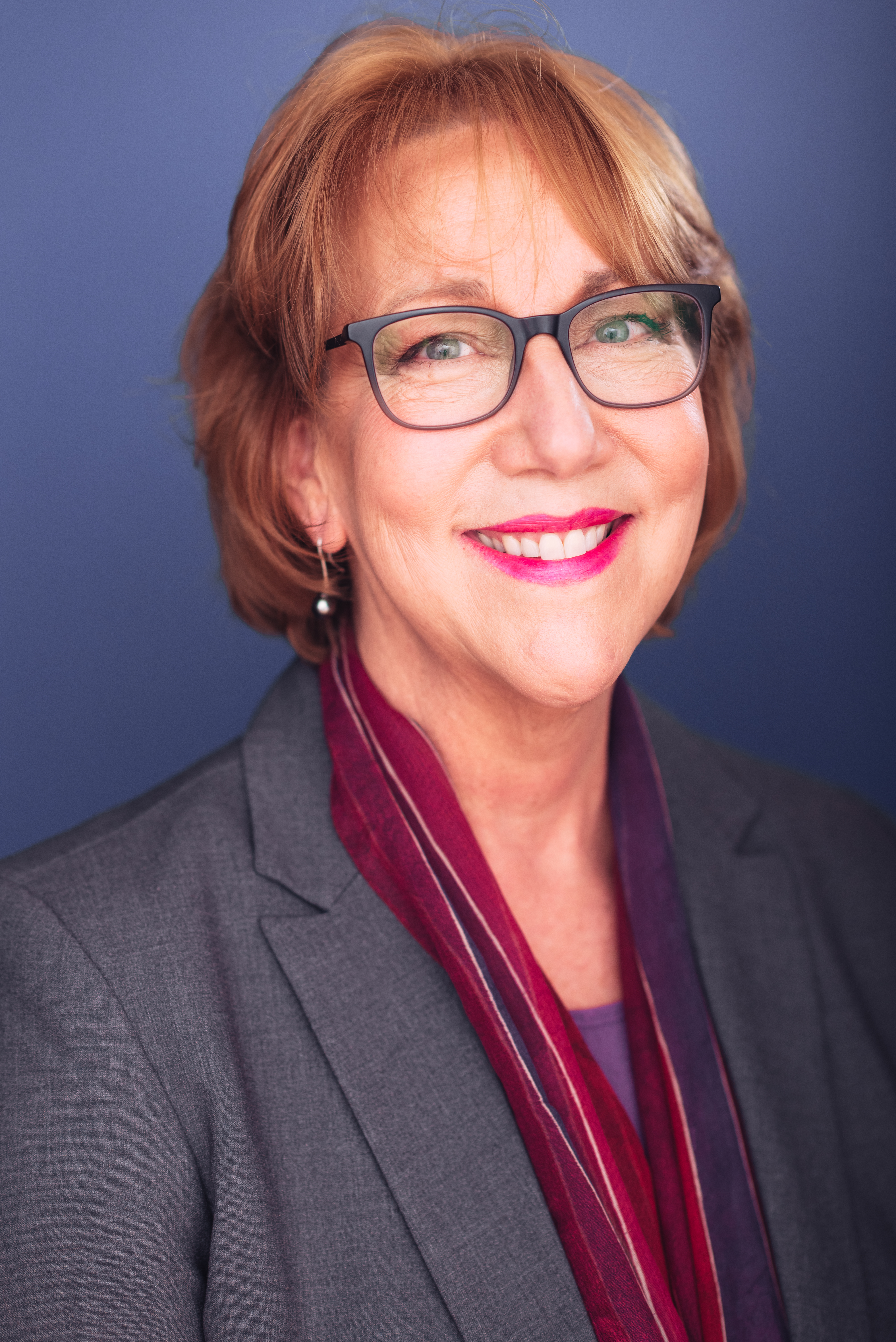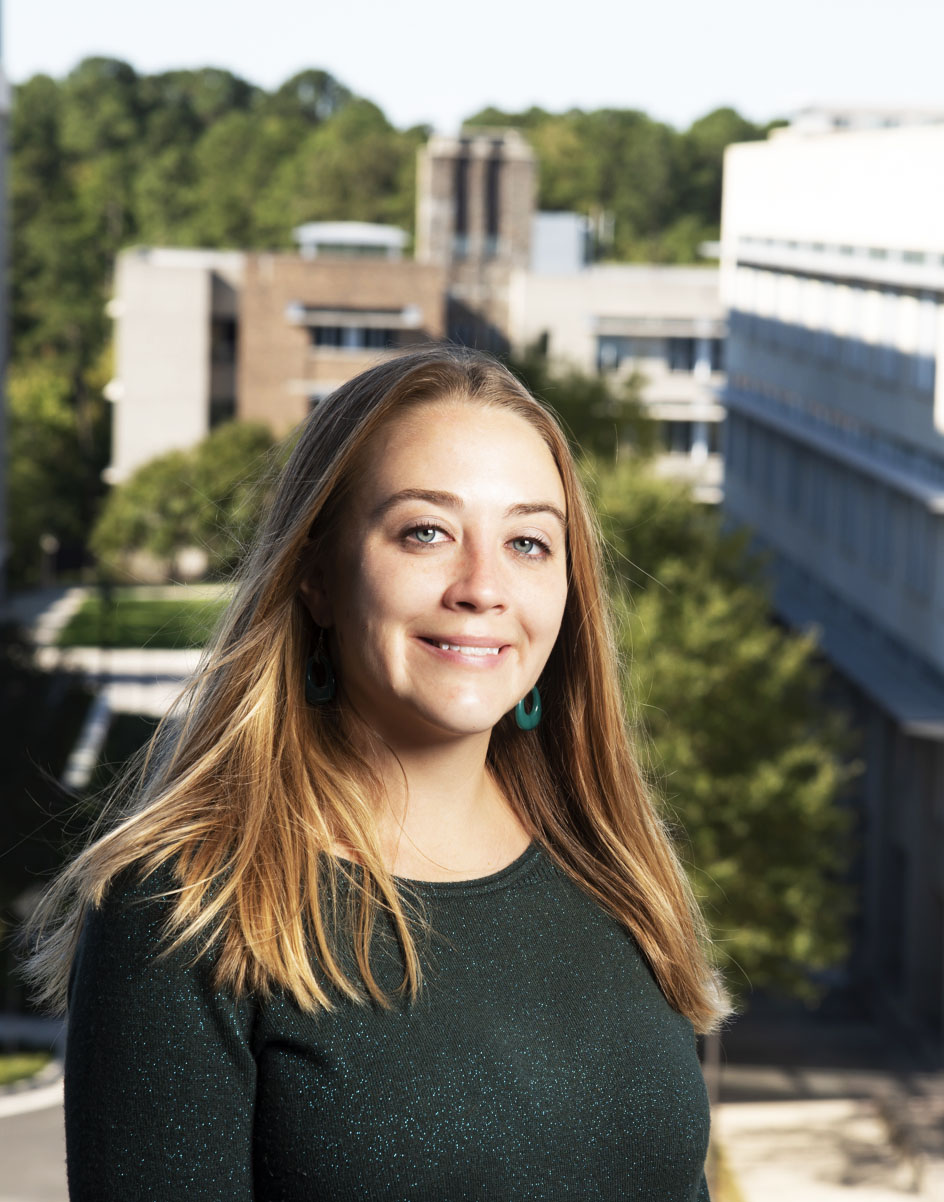Communications should be a fundamental piece of your sustainability career
July 4, 2023

By Lindsay Kuczera
For many prospective students interested in pursuing a Master of Natural Resources (MNR), Lindsay Key is the first person they meet in the program. An alum herself, Lindsay helps answer students’ questions and shares her experience. Recently, I had the pleasure of sitting down with Lindsay, a proud Hokie and a faculty and staff member at the Center for Leadership in Global Sustainability (CLiGS). We talked about the importance of communication in the sciences and, well, I’ll just let her do the talking…
What was your experience at Virginia Tech over the years?
I went to Virginia Tech for undergrad and majored in Communications and English. And then I worked as a journalist right out of college for the Roanoke Times. A couple years later I decided I wanted to pursue a master’s degree in creative writing. I attended UNC Wilmington and while there working on a poetry collection, I also worked-part time as a research communications specialist in the university’s Office of Research and grew to enjoy science writing.
In 2011, after graduating with my MFA, I joined Virginia Tech’s Fralin Life Sciences Institute as a communications officer, where I worked on diverse life science communications activities. Virginia Tech’s Global Change Center was created within the Institute, and one of the center’s aims was to bring together faculty members from across Virginia Tech,including the College of Natural Resources and Environment (CNRE). As I spoke and interviewed researchers from the CNRE, I realized it would be really useful to have a base knowledge of climate and environmental terminology so I could produce effective communications work. That’s when I got introduced to the MNR program.
How did the MNR help you develop those communications skills?
All of the courses are rooted in research and discussion. I was able to deepen my understanding of natural resources and sustainability topics while honing my writing and communications skills through projects and in-depth dialogue with my classmates and professors. The professors helped us understand these issues through various lenses, which also helps us in our communications effort to appeal to different audiences.
I also worked with Heather Eves during an independent study to develop an environmental communications project centered around wildlife. At the time, some conservation films, like Blackfish and The Cove, had just come out, and I decided to evaluate different types of media about wildlife conservation, looking at the success of each type. I conducted an analysis of environmental communication campaigns over ten years (2004–2014), and found social media to be a key ingredient in building activism around wildlife conservation issues. That experience eventually helped inform the way I conducted my class when I went on to teach later.
Why is science communications so important in the environmental field?
Science communications is vital in the natural resources field. It doesn't matter what type of research you're doing or what position you have, you need to be able to communicate your objectives well and convince other people of their importance. The MNR is unique because one of the program’s core courses is focused on communications and leadership. This speaks to the program’s vision.
Virginia Tech even has a dedicated Center for Communicating Science that helps scientists, engineers, scholars, health professionals, and others in technical fields develop the skills to communicate their work effectively. This helps foster collaboration and relationship-building across sectors.

I asked the Center’s Director, Patty Raun, to elaborate on that practice of relationship-building. "Community engagement is the most crucial aspect of research and policy surrounding sustainability and environmental concerns. Folks in this field must develop skills of connection and communication—such as deep listening, and compelling and accurate interaction—that will help them build trusting relationships to inform both the research and the community about key natural resources issues," she said.
You’ve had such an interesting path at Virginia Tech. What are you working on now?
After I graduated from the MNR in 2016, I wanted to focus on environmental writing. I kept in touch with our faculty and staff and soon began contributing to the CLiGS blog. This was a great chance to keep my feet wet in this type of writing, which I love! I also started speaking to prospective students on a volunteer basis, sharing my experience in the program.
In 2018, I joined Duke University’s School of Medicine as a senior science writer and editor. While there I led the development of a digital storytelling magazine that highlights faculty across the School, as well as a health-focused podcast and various other communication projects. Although I enjoyed the challenge of writing about biomedical research—and found it very interesting!—I found myself continuing to write about environmental topics in my spare time.
Eventually, in February 2022, I joined the CLiGS team full-time! I’m now the Assistant Director of Marketing & Recruitment as well as a faculty member. Since I was already involved with CLiGS as an alum, it just felt right. I now support marketing, recruitment, and alum engagement initiatives for the MNR, and also teach the Leadership Communications for Sustainability Professionals course. It’s been an amazing journey supporting this work for an institution that I’ve been a part of in different capacities for so long.
Through my work, I engage with the alum council which helps graduates stay connected with their peers and professors. Last year, we developed career webinars where alums shared their tips for sustainability careers. We plan to do a similar webinar with faculty so that alums can reconnect with their professors.
Can you talk more about the Leadership Communications course and how that fits into the sustainability space?
The course was originally developed by the CLiGS Managing Director, Emily Talley. In the beginning, we discuss environmental communication—its history, its evolution, perspectives, and eventual recognition as its own field. We then ask students to reflect on their own communication styles and the styles of leaders they know. This helps us move into the leadership portion of the course, where we discuss how to use those skills to navigate difficult topics with your peers or those who disagree with you. It’s really important to learn how to have beneficial and productive conversations, especially for the environmental topics that we study in MNR.
Any words of wisdom to prospective or current students?
Be open to new experiences and opportunities and prioritize relationships with people you meet along the way. Network as often as you can. You never know where something might lead you.

Lindsay Key assists with marketing, recruitment, and alum engagement efforts, in addition to teaching a core course in the Master of Natural Resources (Online) program. Lindsay’s professional background is in journalism, creative writing, and organizational science communication. She is passionate about using creative storytelling techniques to engage a broad audience with science and the environment.
Throughout her career, she has served in various marketing and communications roles at Duke University, Virginia Tech, and the University of North Carolina Wilmington, working with university leaders and scientists to develop communication strategies for reaching targeted audiences. She received her Master of Natural Resources degree from Virginia Tech and her Master of Fine Arts in Creative Writing from the University of North Carolina Wilmington. She received her undergraduate degrees in English and Communication Studies from Virginia Tech. In the MNR program, she teaches Leadership Communications for Sustainability Professionals with an emphasis on environmental communications, emotional intelligence, and leadership development.


